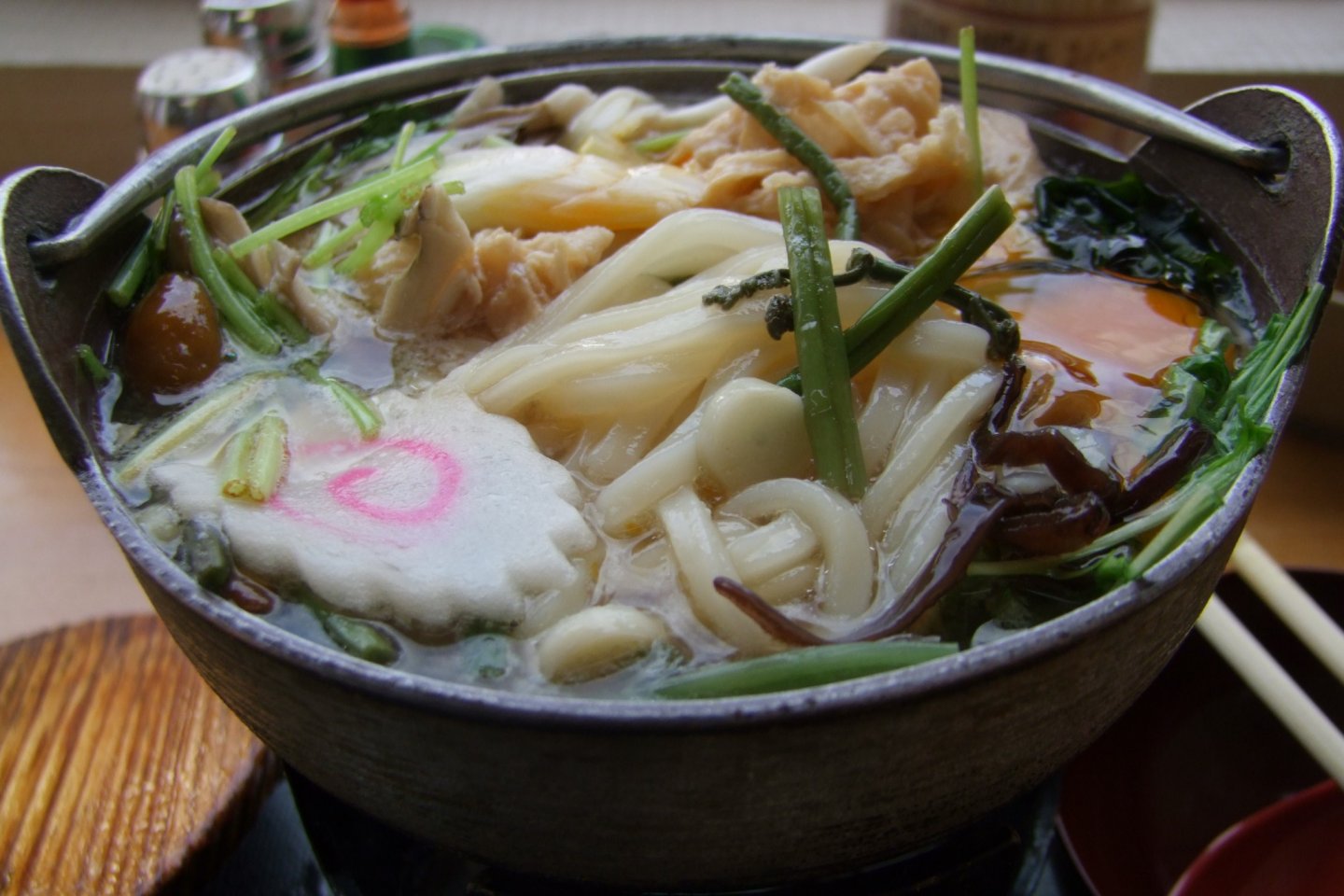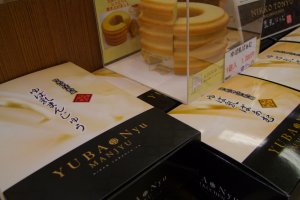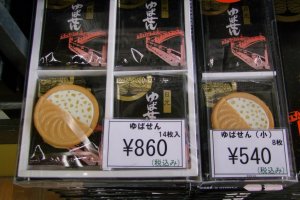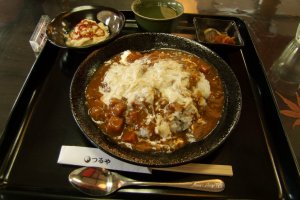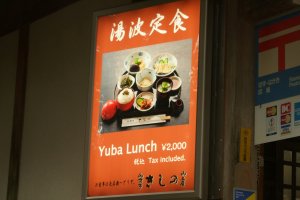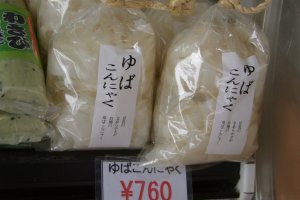Food tourists know that Japanese cuisine is all about the local and regional delicacies. For the Japanese, a mention of a recent trip is more likely to be greeted with "What did you eat?" before "What did you do there?"
One local delight to make a point of seeking out is yuba. Yuba is the well-known delicacy of Nikko and its surrounding areas in Tochigi Prefecture.
What is yuba? It's a food made from the skin that forms on top of soy milk when it gets heated. Now, perhaps you're more open-minded than me, but personally that description doesn't make me want to run out and try some. But the taste sure should. Yuba is delicious, and is an amazingly diverse food that is prepared in a wide variety of ways. And I mean wide.
Walking through Nikko, the yuba promotion is everywhere. All the restaurants have it, some even feature it, and it's an extremely popular souvenir choice. A non-Japanese-speaking person could easily point out the Japanese characters for yuba - ゆば - simply because they're on nearly every sign, poster, flag, and restaurant window. But what truly makes yuba special is how it seems to inspire new, creative ways of using it.
Perhaps the most common use of yuba is in and/or with a bowl of hot noodles. yuba ramen, yuba soba, and yuba udon dishes are ubiquitous, usually with the noodles made of yuba, and often with more yuba on top. But things don't stop there. You can find deep-fried yuba, yuba sushi, yuba gyoza (dumplings), yuba burgers, and Japanese curry with yuba. There is yuba with jelly, yuba soup, yuba-don, and yuba cream inside rice cookies. And of course, there is also raw, unprocessed (nama) yuba. It is eaten fresh, fermented, and fried. And to make it all even better - it's extremely healthy.
The popularity of yuba in this area is connected to its history. Nikko is, of course, most famous for its enormous and ornate shrines and temples, and these UNESCO World Heritage sites are the city's primary draw for most tourists. The monks and priests who lived and tended to those shrines lived on strict vegetarian diets, which meant that yuba was a perfect match for them.
So when you head to Nikko, go ahead and immerse yourself into the local food culture. It'll make you want to go back for seconds.
